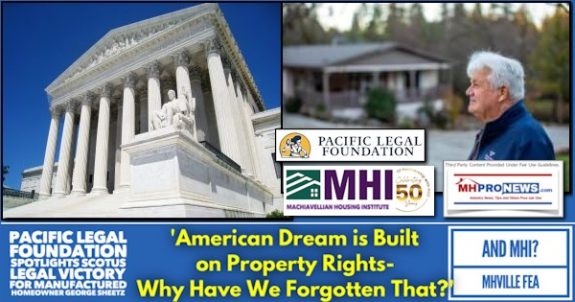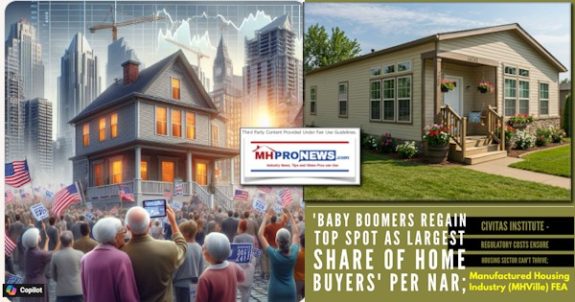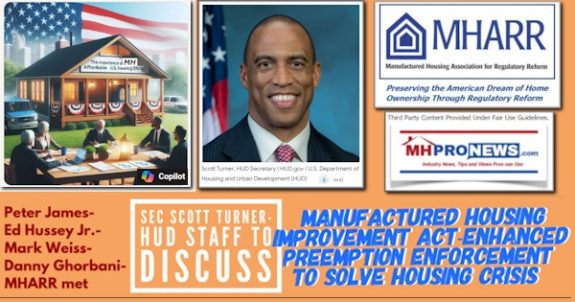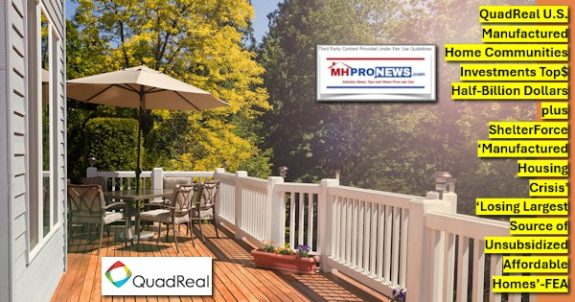Top National News
Mortgage Rates May Not Have Hit Bottom
Record-low interest on 30-year mortgages could drop even lower due to a sluggish economy and European recession, predicts Freddie Mac chief economist Frank Nothaft. The rate hit its lowest mark ever last week at 3.56 percent, but Nothaft says it might slip to 3.5 percent or lower. With borrowing costs so favorable and home prices still trending down, he notes that “affordability is sky high.”
The Number One Issue Affecting U.S. Real Estate — Aging Population
In a recent study of the U.S. housing market, a group of real estate experts explained the top 10 challenges facing the industry right now. According to the Counselors of Real Estate, the No. 1 issue impacting the market is the aging population. The group said that as a large number of Baby Boomers retire, demand could pick up for housing targeted to seniors. While it is unclear what the full impact of the shift will be, there are expected to be changes in demand for residential property and softer home prices. The organization also predicted that demand for homes that can accommodate a variety of health problems and disabilities could rise.
Buffett Says Economy ‘More-or-Less Flat’ as Housing Rebounds
Despite a spark of life in the U.S. housing market, billionaire investor Warren Buffett says the national economy is braking. “The general economy in the United States has been more- or-less flat, and so the growth has tempered down,” the chairman of Berkshire Hathaway explained in a recent interview with CNBC. In terms of residential real estate, he added, “we’re seeing a pickup, and it’s noticeable. It’s from a very low base and it doesn’t amount to a whole lot yet, but it’s getting better.” Buffett’s commentary reflects a reversal from his outlook in recent years. “For a couple years, I’ve been telling you that everything except residential housing was improving at a moderate rate, not crawling, but not galloping either, but that residential housing was flat-lining,” he recalled. “And the last two months it’s been just sort of the opposite.” Buffett’s dipstick for measuring the economy is the performance of his conglomerate’s 70-plus operating units, including a producer of manufactured homes and a real estate brokerage.
Survey Shows Americans Are Increasingly Confident About Homeownership
The latest quarterly Prudential Real Estate Outlook Survey reveals that 69 percent of Americans believe real estate is a good investment, up 6 percentage points from the first three months of the year, and 72 percent expect improvements in the housing market and in property values over the next two years. Interest rates are at historic lows; and 96 percent of respondents at least “somewhat agree” that now is a great time to buy, unchanged from the previous survey. Also, 65 percent report that financing is more challenging than before the market crisis, up from 58 percent.
National Flood Insurance Program Revised and Extended Until 2017
President Barack Obama on July 6 signed a five-year extension of the National Flood Insurance Program (NFIP) into law. The Biggert-Waters Flood Insurance Reform and Modernization Act of 2012 extends NFIP funding to September 2017. It also makes substantial changes, such as raising the ceiling on annual premium hikes to 20 percent from 10 percent, phasing out premium subsidies for many properties, and allowing multifamily housing to buy NFIP coverage.
New Agency Plans to Make Over Mortgage Market
As it nears its one-year anniversary, the Consumer Financial Protection Bureau is making mortgage reform a priority. Its aim is to create a fairer and more transparent home buying experience for consumers, so that they have a better understanding of the kind of loan they are taking out and the costs associated with it. While the CFPB also is taking a hard look at other issues, the mortgage market tops its agenda because, according to director Richard Cordray, “it’s the market where consumers have the most at risk and they have the most at stake.” Soon, the agency expects to introduce rules addressing the “good faith estimate” provided to consumers shopping for a home loan. The new one-page disclosure form covering the terms of the loan — including the interest rate, how it could change over the life of the loan, and how much borrowers will need to bring to the closing table — will be more comprehensive and easier to understand than the previous document. Additionally, mortgage servicers will have to offer clearer information, better service, and options for borrowers facing foreclosure. “If we do all of those things from beginning to end, I think the mortgage process will work better,” Cordray remarks. “And that’s good for the economy.”
Industry News
House Holds Another Hearing on Impact of Dodd-Frank Mortgage Requirements
A House Financial Services subcommittee recently held a hearing on proposed changes under the Dodd-Frank financial reform law, in particular the parameters for a qualified mortgage (QM) that would be exempt from ability-to-pay mandates and other proposed requirements. Testimony was heard from experts representing the Manufactured Housing Institute (MHI), National Association of Home Builders (NAHB), and other interests. Speaking on behalf of MHI was Tom Hodges, general counsel for Clayton Homes. He said MHI urges Congress to support the establishment of a secondary market that allows all loan products — including those for manufactured homes — to fairly compete. Hodges said the move would attract more lenders to the market and reduce borrowing costs. The hope of MHI, he added, is that Congress will recognize the unique nature of manufactured housing finance and avoid measures that curtail lenders’ ability to make manufactured home loans.
UMH Properties, Inc. Declares Common and Preferred Dividends
UMH Properties’ board of directors has declared a quarterly cash payout on the firm’s common stock of $0.18 per share, which will be payable on Sept. 17 to all shareholders of record at the close of business on Aug. 15. A quarterly dividend of $0.515625 for the period of June 1-Aug. 31 on UMH’s Series A preferred shares also was declared by the Board. UMH Properties is the owner and operator of 41 manufactured home communities in several states as well as a portfolio of REIT securities.
Prefab Homes Go Upscale, With Prices to Match
While manufactured homes were once considered to be inexpensive, they now blend in with conventional upscale neighbors. The industry has seen a shift toward upscale prefabricated housing, which can be customized and appointed with high-end amenities. “Today, we see some multimillion dollar homes built with modular construction,” said Mark Leff, former president of the Home Builders Association of Massachusetts. Even so, most manufactured homes continue to be more affordable than traditional residences. According to the National Association of Home Builders, the average price of a manufactured home in 2010 was $138,126, compared to $204,553 for a stick-built home. “The people who keep it the simplest get the most savings,” said Francine Townsend, co-founder and principal of Marshfield-based Sandcastle Group. Hallahan Associates, which tracks the industry, said manufactured home construction increased 18.7 percent between the first quarter of 2011 and the first quarter of this year.
Manufactured Home Sales Stay Strong in Southwest Florida
Sales records indicate that sales of manufactured homes in Southwest Florida surged 64 percent in the first five months of 2011, from 90 units to 148. Experts said many of the buyers used to rent. “They appear to see the value in these units and think they are a good investment at today’s prices,” said Roger M. Piro, a broker at Town and Country Real Estate. Piro said that many of the sales went to snowbirds. “When they come to visit, they now see that they can now own their own unit for similar costs,” he explained. Records show that all but two of the sales were cash transactions. Data from Trendgraphix shows that the flurry of buying activity pushed the median sale price of manufactured homes up from $45,000 at year-end 2011 to $67,000 in March 2012.
Modular Housing Maker Opens New Idaho Plant
ATCO recently held a ribbon-cutting ceremony in Idaho at its new plant, which has created 190 jobs for laborers who will be building modular workforce housing. The residential units will be shipped to oil and mining worldwide. The Pocatello facility is expected to turn out three completed units per day to handle the high demand and will be sourcing 90 percent of its supplies from companies located in Idaho.
‘Upscale’ Manufactured Home Community Planned
A planned manufactured home community in east Midland, Texas, is drawing strong attention from prospective buyers, say the developers. A joint venture between LubbockInvest and Great House Solutions, the upscale project — which will include 185 homes in the initial phase — generated nearly 400 inquiries from interested parties. Buyers will own their units; while the developers will maintain ownership of the lots and will provide professional landscaping and maintenance for the lots community. Among those showing interest in Stone Bridge Estates are oilfield workers who currently pay to live in hotels and families forced to live in separate states because they are unable to afford housing in the area. The development partners are working to ensure that the combined monthly cost for the land and home will fall between $1,200 and $1,500. The community’s grand opening is scheduled for February; and given the current demand, it is expected to be fully leased within the next few months.
MHI News
MHI Testifies Before House Subcommittee on Financial Institutions and Consumer Credit on Negative Impacts of Dodd-Frank and SAFE Acts
On July 11, 2012, Tom Hodges, General Counsel for Clayton Homes, Inc., represented MHI and the manufactured housing industry before the U.S. House of Representative’s ever-important Committee on Financial Services’ Subcommittee on Financial Institutions and Consumer Credit. Hodges detailed the unforeseen, negative consequences of the recently enacted Dodd-Frank Wall Street Reform and Consumer Protection Act (Dodd-Frank Act) and the Secure and Fair Enforcement of Mortgage Licensing Act (SAFE Act) will have on manufactured housing lending. Click here to view the webcast.
Other groups testifying included the Securities Industry and Financial Markets Association, the National Consumer Law Center, the National Association of Mortgage Brokers, the National Association of Home Builders, the National Association of Realtors, and the Mortgage Bankers Association. MHI was the only manufactured housing industry group invited to testify before the Subcommittee.
With respect to Dodd-Frank’s impact on manufactured housing, Hodges pointed to specific regulations being developed by the Consumer Financial Protection Bureau (CFPB) as key areas of concern:
• New high-cost mortgage definitions that do not adequately account for the price pressures on small-balance manufactured home loans, which may diminish consumer accessibility to this form of sustainable housing;
• Lack of regulatory guidance in applying the SAFE Act definition of a mortgage originator to the unique activities of those selling manufactured homes may diminish the level of customer assistance available to those seeking to purchase affordable manufactured housing; and
• Limitations on points and fees for “qualified mortgages” could serve as a disincentive for serving the already credit-constrained manufactured housing market because the costs to originate such loans cannot adequately be recouped.
Hodges urged the Subcommittee to support efforts for more statutory guidance to the Consumer Financial Protection Bureau to ensure that none of the three areas negatively impact the ability of lenders or retailers to provide affordable loans to people seeking to purchase manufactured homes. Hodges also pointed out that the manufactured housing industry supports the bipartisan bill, Preserving Access to Manufactured Housing Act (H.R. 3849), which would provide relief to consumers and the industry.
Dodd-Frank and CFPB Updates
CFPB Issues Final Rule on Privileged Information
On July 5th, the CFPB issued a final rule intended to codify protections for privileged information submitted by CFPB-regulated entities. The rule asserts that an entity providing privileged information to the CFPB does not waive any applicable privilege with respect to third parties. In addition, the final rule clarifies that the CFPB’s transfer of privileged information to another federal or state regulator also does not result in a waiver of any applicable privilege. To view the final rule, click here
CFPB Launches Consumer Complaint Database
On June 19th, the CFPB announced it will begin making public all individual-level consumer complaint data received by the agency. Currently, the Bureau maintains a database that allows for public viewing of credit card complaints. However, the CFPB is considering (and seeking public comment) on expanding the database to cover all financial services and entities under CFPB’s jurisdiction. According to the CFPB, when a consumer files a complaint, the agency will review for completeness, jurisdiction and non-duplication. Complaints will then be forwarded to the appropriate company (bank or nonbank) for review and resolution. Companies will be given 15 days to provide a substantive response to each consumer complaint and are expected to resolve most complicated complaints within 60 days. For more information, click here.
Community, Modular and Manufactured Home Lending Could Feel Sting of Basel III Capital Rules
On June 18th, the law firm K&L Gates issued a report (click here) analyzing the potential impact that new capital reserve requirements that are being considered by the Federal Reserve would have on residential mortgage lending activities. Three sets of proposed regulations would set risk-based capital rules for banks to make them consistent with the new international capital standard, known as Basel III. Conventional residential mortgage loans with LTVs greater than 80 percent, regardless of the presence of private mortgage insurance, could trigger material adverse capital requirements if the loans are held for investment and do not comply with certain underwriting criteria. Of particular concern is that, if banks price loans to account for the increased capital requirements, they may trip “high cost” triggers in Dodd-Frank to which manufactured home personal property loans are already susceptible and make the loans virtually “toxic.” In addition, according to analysis by the American Bankers Association (click here), construction and commercial real estate loans could be subject to tougher capital requirements, potentially making them less attractive to banks. Basel rules would require certain development loans to carry a 150 percent risk weighting. The rule would cap the amount of leverage banks can use in making loans, leading lenders to look for deals where a developer would put in a significant amount of cash equity. Banks would be less likely to let developers rely just on the equity from appraisals. Better-capitalized banks would be more likely to consider construction loans.
CFPB Seeking Comments on Compliance Costs
On June 14th, the CFPB issued a request for comments related to the cost of complying with new and proposed rules. The Dodd-Frank Act calls for the CFPB to consider the potential benefits and costs of certain rules to consumers and “covered persons,” including depository and non-depository providers of consumer financial products and services. This includes an assessment of the impacts of rules on consumers in rural areas and on depository institutions and credit unions with total assets of less than $10 billion. In its notice, the CFPB states that it “seeks to collect qualitative information from industry participants regarding the compliance costs and other effects on providers and consumers, both as to existing regulations in force as well as to proposed new regulations. Through the collections under this generic clearance, the Bureau aims to understand the effects of potential regulations on providers and consumers, the ways in which providers may comply with potential regulations, and the costs associated with compliance.” To view the notice, click here.
CFPB Finalizes Rules on Official Notification, Adjudication and Investigations
On June 29th, the CFPB finalized three rules:
• State official notification—establishes procedures by which state officials notify the CFPB of actions undertaken pursuant to the authority granted to states to enforce the Dodd-Frank Act. Click here for more information.
• Adjudication proceedings—Dodd-Frank authorizes the CFPB to conduct administrative adjudications to ensure or enforce compliance with any law under the jurisdiction of the Bureau; the rule establishes rules of practice related to these proceedings. Click here for more information.
• Investigations—the Dodd-Frank Act authorizes the Bureau to investigate whether any person has engaged in activity that violates any aspect of federal consumer financial law; the rules set forth the parameters that govern CFPB investigations. Click here for more information.
Congress Finalizes Extension to Federal Flood Insurance Program
The Congress passed and the President signed into law a five year extension of the Federal Flood insurance program, thereby ensuring the availability of affordable flood insurance to more than 5.6 million businesses and homeowners who rely on it.
After years of short-term extensions, Democrats and Republicans finally compromised on changes that will reduce the federal liability while continuing a program required by lenders for the purchase of property in flood-prone locations. The compromise amendments supported by Republicans, many of whom wanted to end the program altogether, require a four year phase-out of rate subsidies for non-primary residences. Part-time residents of many communities will begin to see rate hikes immediately, as the first of the phase-in increases started July 2012.
The compromise prevents a potentially catastrophic lapse of the National Flood Insurance Program which subsidizes rates for flood insurance. According to the National Association of Realtors, a lapse in insurance would have affected 1,300 loan transactions a day, or nearly 40,000 a month. The new law will bring certainty to real estate transactions in more than 21,000 communities nationwide where flood insurance is required for a mortgage.
5,197 New HUD Code Homes Shipped in May 2012
In May 2012, 5,197 new manufactured homes were shipped, up 16.1 percent from May 2011. Increases were across the board with shipments of both single-section and multi-section homes up compared with the same month last year.
Compared with the prior year, 2012 has recorded shipment increases in every month. For the January through May period, 2012 shipments totaled 22,627 homes compared with 18,125 homes in 2011, a net increase of 24.8 percent. A total of 8,032 floors were shipped in the month, an increase of 16.9 percent over May 2011.
The seasonally adjusted annual rate (SAAR) of shipments was 55,982 in May 2012, up 6.3 percent from the rate of 52,642 in April 2012. The SAAR corrects for normal seasonal variations in shipments and projects annual shipments based on the current monthly total.
The number of plants reporting production in May was 122, one down from the number in April, and the number of active corporations was 45, unchanged from the prior month.


























